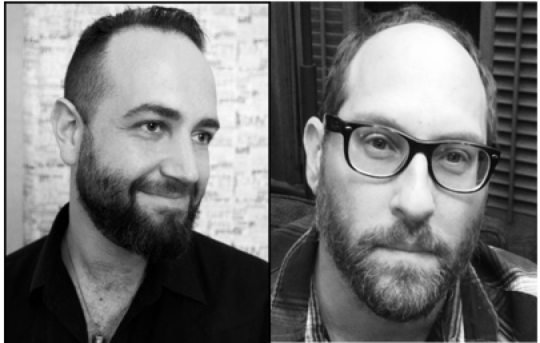
A Conversation on the Occult Practices in the Arts Between Poet Janaka Stucky and Peter Bebergal
In 2015, Jack White’s Third Man Records launched a new publishing imprint, Third Man Books, and chose Janaka Stucky’s debut book of poetry, The Truth Is We Are Perfect, as their inaugural title. Stucky’s poems are at once incantatory, mystic, epigrammatic, and full of subtle esoteric, and occult influences. His influences, combined with a performative and almost ecstatic presence on stage, make him an unsurprising but nonetheless interesting choice for the record label’s first author.
Peter Bebergal’s book, Season of the Witch: How the Occult Saved Rock and Roll, was published by Tarcher-Penguin in 2014. Bebergal’s book explains how occult and mystical ideals gave rock and roll its heart and purpose, and made the music into more than just backbeat, and into part of a cultural revolution of political, spiritual, sexual, and social liberation.
Given Stucky’s influences and Bebergal’s interests (and the fact that they play in a Dungeons & Dragons group together), we thought it was natural that they strike up a conversation on the occult imagination in music, art, and poetry. What follows is a conversation exploring the influence of occult traditions on rock and roll—from the Beatles to Black Sabbath—and how the marriage between mysticism and music changed our world.
JANAKA STUCKY: My editor at Third Man shied away from the occult stuff in my book. But I was reading Season of the Witch when I was coming up with the book’s marketing and publicity plan, and it was fantastic for me to see how all of these rock icons express the occult imagination in their personas and in work. Especially the stuff that’s a little more subtle, but still mysterious: like Led Zeppelin’s sigils on their albums. The editor kept wanting to play these elements down a little, but I was like, “Guys this is rock and roll. What are you doing?”
PETER BEBERGAL: These ideas and symbols immediately key into some part of us that just resonates, and sometimes we’re afraid of them. Sometimes we whole-heartedly believe in them. Sometimes we think they are ridiculous, but all those things contribute to what I call the occult imagination. We usually think of the occult as a collection of practices, whether it’s Tarot cards, ceremonial magic, and/or a pagan Solstice ritual. What the practices tend to have in common, both in contemporary and historical ways, is that they tend toward being heterodox. They often position themselves against normative or mainstream ways of practicing a spiritual system. Whether the practices actually reference any real metaphysical state,...
You have reached your article limit
Sign up for a digital subscription and continue reading all new issues, plus our entire archives, for just $1.50/month.
Already a subscriber? Sign in




